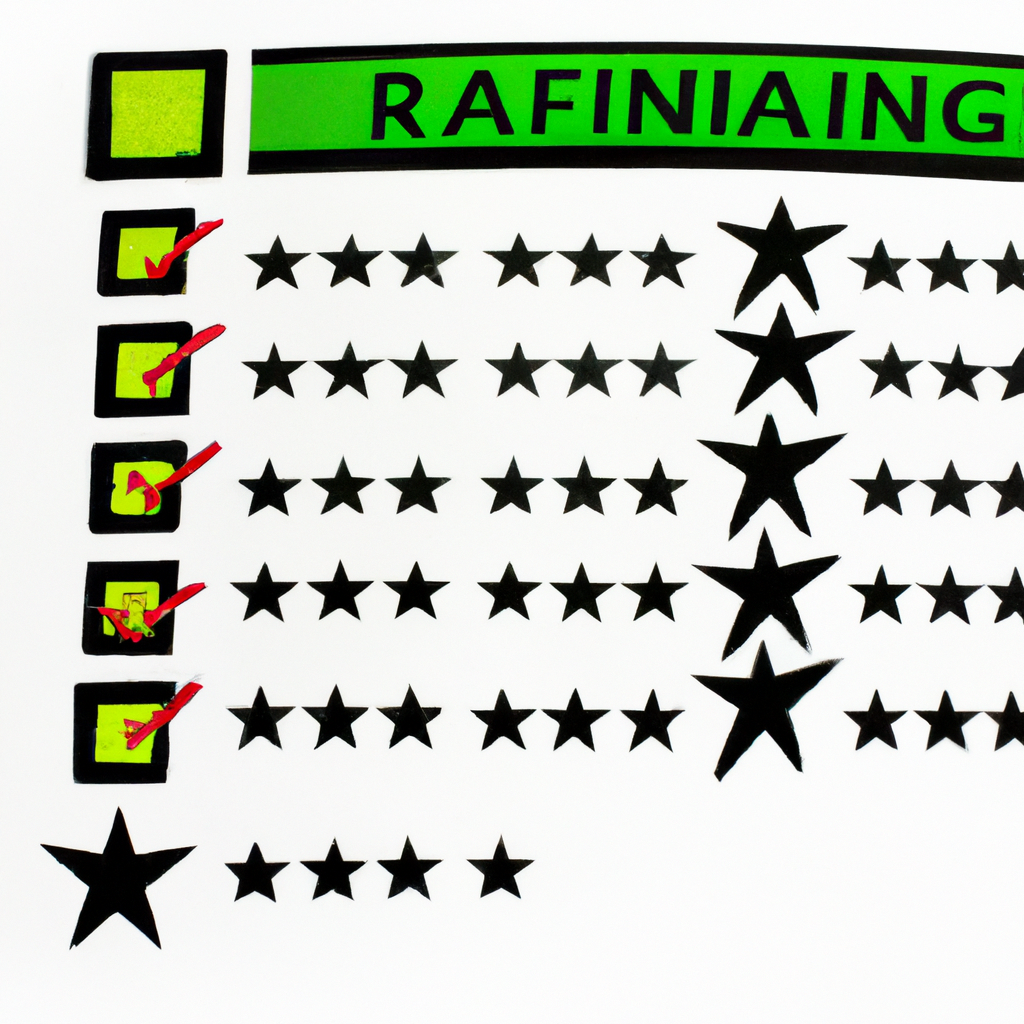Rating System for Brokers: An Essential Tool for Making Informed Investment Decisions
Introduction
In today’s fast-paced financial world, finding a reliable broker can be a daunting task. With countless options available, it becomes crucial for investors to have a systematic way of evaluating and comparing brokers. This is where a rating system for brokers comes into play. By providing a standardized framework for assessment, a rating system empowers investors to make informed decisions and choose the best broker for their investment needs.
Understanding the Rating System
A rating system for brokers is designed to evaluate various aspects of a broker’s performance, reliability, and customer satisfaction. It typically takes into account factors such as fees and commissions, trading platforms, customer support, regulatory compliance, and overall user experience. The system assigns scores or ratings to each broker based on these criteria, allowing investors to compare and rank them objectively.
Benefits of a Rating System
1. Transparency: A rating system brings transparency to the broker selection process by providing clear and concise information about each broker’s strengths and weaknesses. This enables investors to make informed decisions based on factual data rather than relying on subjective opinions or marketing claims.
2. Objective Evaluation: A rating system eliminates bias and subjectivity by using predefined criteria to evaluate brokers. This ensures that all brokers are assessed on the same parameters, allowing for a fair and objective comparison.
3. Time-saving: With a rating system in place, investors can save significant time and effort that would otherwise be spent on researching and evaluating individual brokers. The system provides a consolidated overview of multiple brokers, making it easier to identify the most suitable options.
4. Risk Mitigation: By considering factors such as regulatory compliance and customer satisfaction, a rating system helps investors mitigate risks associated with unreliable or fraudulent brokers. It provides a safeguard against potential scams or unethical practices, ensuring that investors’ funds are in safe hands.
Using a Rating System Effectively
1. Identify your needs: Before utilizing a rating system, it’s important to understand your own investment goals and requirements. This will help you filter brokers based on the specific features and services you prioritize.
2. Research the rating system: Not all rating systems are created equal. Take the time to understand the methodology and criteria used by the rating system you plan to rely on. Look for reputable sources and ensure that the system is known for its accuracy and reliability.
3. Compare ratings: Once you have a list of brokers and their respective ratings, compare them side by side. Pay close attention to the criteria that matter most to you, such as fees, trading platforms, or customer support. Consider the weightage assigned to each criterion and how it aligns with your priorities.
4. Read user reviews: While ratings provide a great starting point, it’s equally important to read user reviews and testimonials. These can provide valuable insights into the actual experiences of other investors with the broker in question.
5. Seek professional advice: If you’re still unsure or overwhelmed by the options, consider seeking advice from financial professionals or experienced investors. They can provide personalized recommendations based on your unique circumstances and investment goals.
Conclusion
A rating system for brokers is an invaluable tool for investors looking to navigate the complex world of brokerage services. By providing transparency, objectivity, and time-saving benefits, it empowers investors to make well-informed decisions and choose brokers that align with their investment goals. When used effectively, a rating system can significantly enhance the overall investment experience and contribute to long-term financial success.

